Trump’s Speech on Economy Veers Into an Anti-Immigrant Tirade

© Doug Mills/The New York Times

© Doug Mills/The New York Times
京东集团确认,京东控股的投资主体购入香港中环中国建设银行大厦五成股权,交易作价为34.98亿元(港元,5亿8300万新元)。这是继阿里巴巴之后,再有中国大陆电商集团收购香港商厦。
香港《信报》和《星岛日报》报道,丽新发展星期二(12月9日)宣布出售中国建设银行大厦五成权益,京东星期三(10日)发出公告确认交易,收购方为京东控股的投资主体。
京东表示,看好在香港的发展,将围绕供应链持续投资推动零售、物流、技术研发等业务融入香港,服务香港。
京东指,此次购入的中国建设银行大厦部分办公楼层,面积约1万1202平方米,收购方为京东控股的投资主体,交易还需获得相关审批。京东也称,入港发展十年来,从物流基础设施到线下零售实体,从校企科研合作到看好港股市场,此次办公场地的升级也被外界视为京东坚定在港发展的标志。
位于香港中环干诺道中3号的中国建设银行大厦,前身为香港丽嘉酒店,楼高27层,地下通道可直达中环港铁站。
今年10月,阿里巴巴与蚂蚁集团宣布,与文华东方国际集团达成协议,计划投资约72亿港元购置铜锣湾港岛壹号中心(One Causeway Bay)多层商业写字楼作为两家企业的香港总部。
第十一世班禅额尔德尼·确吉杰布说,藏传佛教活佛转世必须依法管理,认定活佛转世灵童的寻访工作必须经中共中央政府批准,绝不允许任何境外组织或个人干涉或支配。
据《西藏日报》报道,中国全国政协常委、中国佛教协会副会长、中国佛教协会西藏分会会长班禅额尔德尼·确吉杰布星期一(12月8日)出席在日喀则市举行的藏传佛教活佛转世制度座谈会。
班禅在会上说,藏传佛教活佛转世必须坚持依法管理原则。《藏传佛教活佛转世管理办法》为依法推进活佛转世事务提供了基本依据。活佛转世只有依法依规开展,才能切实维护藏传佛教活佛转世方式的有效性和纯洁性。
他提到,历代中央政府对活佛转世进行严格管理,形成了一整套规范严密的历史定制。活佛转世只有遵循历史定制原则,充分体现国家主权和政府权威,维护祖国统一和民族团结,维护社会和谐稳定,才能促进藏传佛教自身健康传承。
班禅说,寻访认定活佛转世灵童必须坚持“国内寻访、金瓶掣签、中央政府批准”重要原则,绝不受境外任何组织、个人的干涉和支配,充分发挥佛教协会的主体作用、高僧大德的骨干作用,才能体现藏传佛教活佛转世的神圣性和权威性。
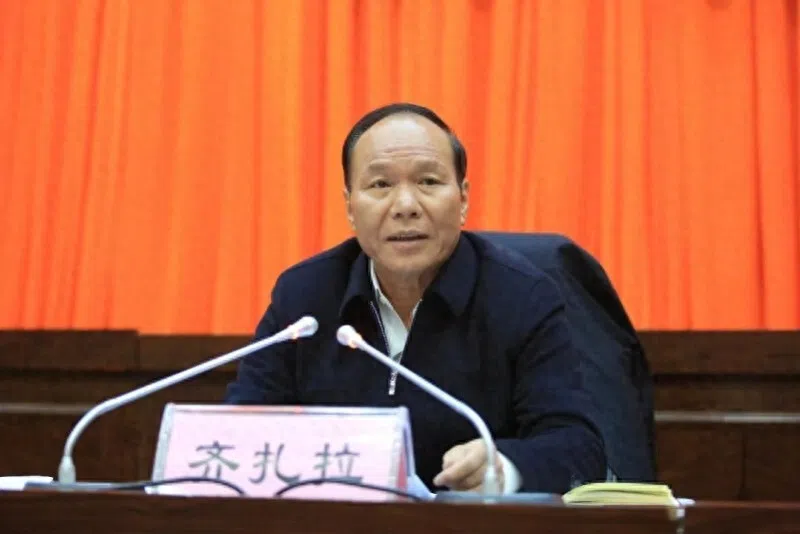
曾任中国西藏自治区政府主席的中国十四届全国政协原常委、农业和农村委员会原副主任齐扎拉,因涉嫌受贿,被检察机关审查起诉。检方称,齐扎拉受贿数额特别巨大。
中国央视新闻星期三(12月10日)报道,齐扎拉涉嫌受贿一案,由国家监察委员会调查终结,移送检察机关审查起诉。最高人民检察院依法以涉嫌受贿罪对齐扎拉作出拘捕决定,并指定由重庆市人民检察院第一分院审查起诉。重庆市人民检察院第一分院已于近日向重庆市第一中级人民法院提起公诉。
检察机关起诉指控,被告人齐扎拉利用职务上的便利以及职权、地位形成的便利条件,通过其他国家工作人员职务上的行为,为他人谋取利益,非法收受他人给予的财物,数额特别巨大,依法应当以受贿罪追究其刑事责任。
齐扎拉是藏族,出生于1958年8月,云南迪庆州人,长期在云南、西藏两地工作。
他曾任云南省迪庆州委常委、中甸县委书记,迪庆州委副书记、中甸县委书记,迪庆州委副书记、州长,迪庆州委书记,云南省委常委、迪庆州委书记。
2010年9月,他调任西藏自治区党委常委、统战部部长;2011年11月任西藏自治区党委常委、拉萨市委书记;2016年11月升任西藏自治区党委副书记,2017年1月,任西藏自治区党委副书记、区政府主席,任职近五年。
2021年10月,齐扎拉卸任西藏自治区政府主席,进京赴任第十三届全国人民代表大会民族委员会副主任委员,2023年3月任第十四届全国政协常委、农业和农村委员会副主任。
今年1月,齐扎拉被查,7月被开除党籍和公职。通报称,齐扎拉丧失理想信念,背弃初心使命,履行全面从严治党主体责任不力,搞“形象工程”“政绩工程”,长期搞迷信活动;家风不正,对家属失管失教;毫无敬畏之心,与商人老板沆瀣一气等。

© Aaron Wojack for The New York Times
台湾总统赖清德批评,中国大陆在靠近日本海域航行和举行的军事演习“非常不恰当”,并称台湾坚定反对用暴力或胁迫方式改变区域和平稳定。
综合路透社和《联合报》报道,赖清德星期三(12月10日)在台北出席亚洲民主人权奖颁奖典礼前受访时,作出以上表述。
他呼吁中国大陆体现大国责任,推动地区和平,并称为维护台湾安全及台海和平稳定,台湾将坚定维持现状并提升国防力量,与周边民主国家共同维护区域和平、稳定与繁荣。
中国航母打击群近期在靠近日本的海域航行和举行演练,引发双方军机在海上对峙。日方指中国辽宁号航母舰载机歼-15上星期六(6日)在冲绳岛东南方向的国际海域,两度向日本航空自卫队的F-15战斗机进行雷达照射。
此外,赖清德受访时还提到,国防特别预算条例送入立法院后,已两度被程序委员会封杀。他希望条例能够付委员会审查,让社会了解审查过程,并获得广泛支持,或根据民意进行必要的删减和调整。
他说,台湾在区域和平稳定中承担重要责任,“如果说我们没有善尽我们的责任的话,应对中国威胁时将面临更大的困难。我希望在野党能够清楚知道。”
赖清德指出,台湾内部竞争在所难免,但面对外部威胁必须团结一致。中国大陆不仅威胁台湾,也对周边国家施加压力。在此背景下,周边国家纷纷强化国防并进行区域合作,台湾也必须提高国防能力和预算,以保障自身安全并维护区域稳定。
中国大陆国台办回应台湾以资安为由封禁小红书,称封禁理由中的所谓“资安”,暴露的是台湾民进党当局内心的恐惧和“不安”。
国台办发言人陈斌华星期三(12月10日)在新闻发布会上,引用《左传·桓公十年》的名句“匹夫无罪,怀璧其罪”,称小红书深受台湾民众特别是青年的喜欢。“这让民进党当局刻意制造的‘信息茧房’和对大陆的污蔑抹黑塌了房、破了功。因此民进党当局如芒在背,恼羞成怒。其封禁理由中的所谓‘资安’,暴露的是他们内心的恐惧和‘不安’。”
12月4日,台湾以资讯安全、诈骗案飙升、未在台设法律代表人为由,宣布封锁小红书一年。台湾政府指小红书过去两年在台涉及1706起诈骗案,造成民众损失财务近2.5亿元新台币(1035万新元),小红书在资讯安全检测中的15项指标也全数未合格。
陈斌华星期三表示,至于所谓反诈,脸书在岛内去年涉诈近6万件,今年也已超过3万件,远超民进党当局所指控的小红书涉案数量。“因此,民进党当局名为‘反诈’,实为‘反民主’,其蛮横行径践踏民主,妨害自由,粗暴剥夺台湾民众特别是青年的知情权和使用社交平台的自由,严重损害岛内以小红书谋生获利的民众的生计”。
他还说,从封锁大陆购物平台、影音平台,再到封禁大陆社交平台,民进党已经成了名副其实和老百姓作对的“民禁挡”,凡是台湾民众常用的就非禁不可,凡是台湾青年爱用的就非挡不可。“多行不义必自毙,民进党当局恣意妄为,必将自食恶果。其倒行逆施阻挡不了台湾民众特别是青年了解大陆、与大陆同胞相交相知的民意潮流”。
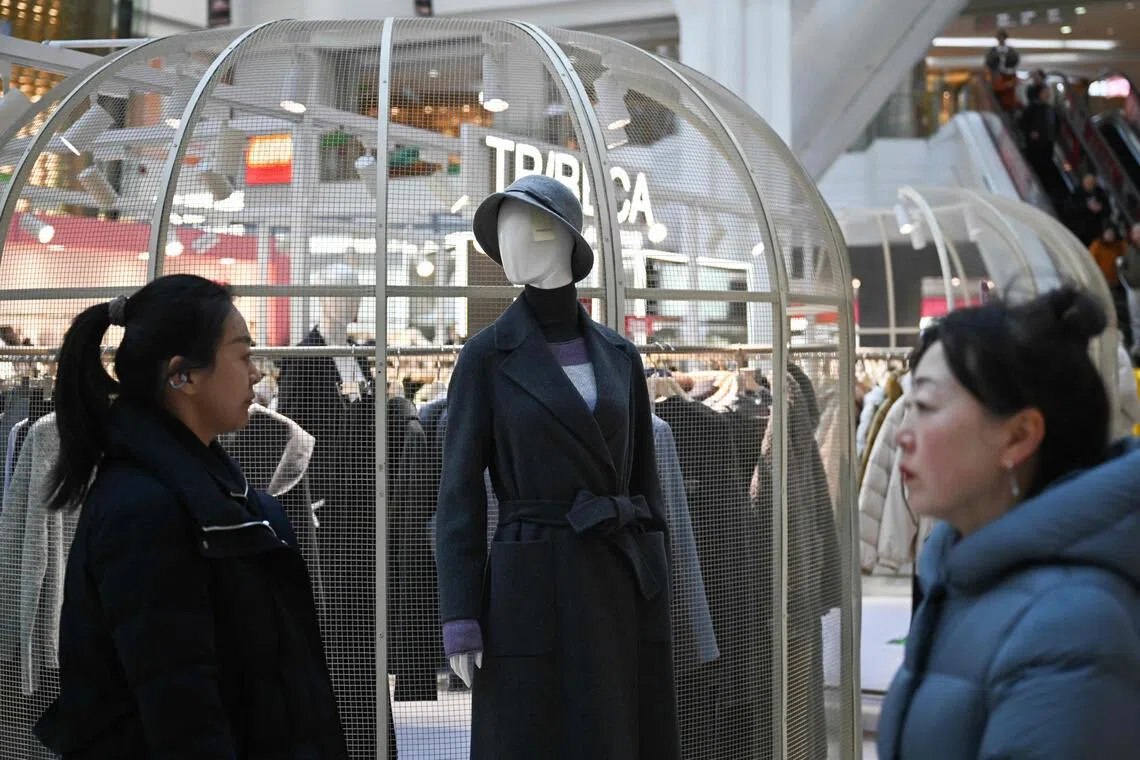
随着北京持续推进去产能行动,中国11月居民消费价格指数(CPI)涨幅扩大,工业生产者出厂价格指数(PPI)则呈下降趋势。
中国国家统计局星期三(12月10日)在官网公布的数据显示,11月CPI同比上涨0.7%,与路透社经济学家调查预期一致,高于10月的0.2%。环比来看,CPI下降0.1%,低于市场预期的上涨0.2%,此前10月环比上涨0.2%。
中国国家统计局城市司首席统计师董莉娟解读数据时说,11月CPI同比涨幅扩大主要是食品价格由降转涨拉动,环比下降主要是受服务价格季节性下降影响。
数据还显示,10月PPI同比下降2.2%,已连续第38个月下跌,跌幅高于市场预期的2%。
自冠病疫情结束以来,中国一直面临通缩压力,这主要源于房地产长期低迷和消费者需求疲软。一些行业产能过剩导致供应过剩,企业被迫降价以维持生存。

© Haiyun Jiang/The New York Times

© Eric Lee for The New York Times

© Adriana Loureiro Fernandez for The New York Times

 Getty Images
Getty ImagesRussia's full-scale war on Ukraine will soon enter its fifth year. Mysterious incidents of so-called "hybrid warfare" are mounting in Europe, increasing tensions. And in the UK, military chiefs have warned we must prepare for war if we want to avoid it. But if the unthinkable happened, and war with Russia broke out, could the UK fight for more than just a few weeks?
Listen to Frank reading this article
"We are not planning to go to war with Europe. But if Europe wants to, and starts, we are ready right now." So said Russian President Vladimir Putin on 2 December, accusing European countries of hindering US efforts to bring peace in Ukraine.
To be clear, it is extremely unlikely that the UK would ever find itself in a war with Russia on its own, unsupported by Nato allies.
But Putin's words were an uncomfortable reminder that a war between Russia and Nato countries, including the UK, was not as remote as people hoped.
"Well that's odd. I've got no signal on my phone." "Me neither. I'm offline. What's going on?" That scenario, hypothetically, is just one way we could know that a war with Russia had begun, or was about to. (I should add that there can also be other, perfectly benign, reasons for a loss of signal.)
That signal interruption could be followed by an inability to make bank payments for essentials like food and fuel.
Food distribution would be disrupted, electricity supplies compromised.

 AFP via Getty Images
AFP via Getty ImagesThere are many ways of fighting a war, and not just the physically destructive wave of drones, bombs and missiles so tragically familiar to the citizens of Ukraine.
Our modern, tech-driven society is highly dependent on the network of undersea cables and pipelines that connect the UK to the rest of the world, carrying data, financial transactions and energy.
Covert activity by Russian spy vessels, such as the Yantar, is widely believed to have scoped out these cables for potential sabotage in a time of war, which is why the Royal Navy has recently invested in a fleet of underwater drones equipped with integrated sensors.
In a war, these hidden, unseen actions, combined with an almost inevitable attempt to "blind" Western satellites in space, would seriously hamper the UK's ability to fight, as well as potentially wreaking havoc on civil society.

 Getty Images
Getty ImagesAt a recent conference in London entitled Fighting the Long War, organised by the Royal United Services Institute (Rusi), a Whitehall think tank, military and political figures came together to discuss whether the UK's current armed forces would be in a position to sustain a protracted conflict before they ran out of everything from troops, to ammunition to spare parts.
"There remains little evidence that the UK has a plan to fight a war lasting more than a few weeks," argues Rusi's Hamish Mundell. "Medical capacity is limited. Reserve regeneration pipelines are slow… The British plan for mass casualty outcomes appears to be based on not taking casualties."
With classic British understatement, he says: "This could be considered an optimistic planning assumption."
He adds that to fight a long war you need proper back-up. "It demands a second and even third echelon; personnel, platforms and logistics chains that can absorb losses and continue the fight. Yet this depth is notably absent from current British force design."
"There are shortfalls in ammunition, artillery, vehicles, air defence, and people, with limited to no ability to regenerate units or casualties," says Justin Crump, CEO of Sibylline, a private intelligence company.
Two of the biggest military lessons to come out of the Ukraine war are firstly, that drones are now integral to modern warfare, at every level, and secondly, that "mass", or sheer volume of personnel and military hardware, matters.

 Getty Images
Getty ImagesRussia's army is generally of a very low quality. Its soldiers are poorly equipped, poorly led and poorly fed. Their life expectancy in the deadly "drone zone" of eastern Ukraine is short.
UK Defence Intelligence estimates that since the start of the full-scale invasion in February 2022 Russia's army has suffered more than 1.1 million casualties – that is killed, wounded, captured or missing.
Even conservative estimates put the number of Russians killed at 150,000. Ukraine has also suffered catastrophic casualties but numbers are hard to ascertain.
But Russia has been able to draw on such a massive pool of manpower that it has so far been able to replace its estimated 30,000 monthly battlefield casualties with fresh blood.
Russia's economy has also been on a war footing for more than three years now: an economist has been placed in charge of the Defence Ministry, while its factories churn out ever more supplies of drones, missiles and artillery shells.
According to a recent report by the Kiel Institute for the World Economy, Russia has been producing each month around 150 tanks, 550 infantry fighting vehicles, 120 Lancet drones and more than 50 artillery pieces.
The UK, and most of its Western allies, are simply not anywhere near this point.

 EPA/Shutterstock
EPA/ShutterstockAnalysts say it would take years for Western Europe's factories to come close to matching Russia's mass-production of weapons.
"The land war in Ukraine has shown beyond doubt that mass is absolutely vital for anybody that is going to face Russia on land," says Keir Giles, a Russia expert at Chatham House think tank.
"And having deep reserves vastly greater in number than the standing regular armed forces has been shown to be essential."
France and Germany have both recently moved to revive a system of voluntary military service for 18-year-olds.
The UK's former Head of the Army, Gen Sir Patrick Sanders, suggested in 2024, the year he retired, that the UK should train what he called "a citizen army" to fight a land war in the future. The idea was shot down by No. 10.
"I think it's a cultural thing within the UK," says Ed Arnold, senior research fellow at Rusi.
"So if you look at the states that are now looking towards [military service] - like Sweden, Germany and France - they are states who culturally still have an institutional memory of when they had that system.
"We haven't had national service since the 1960s and attempts to have that national conversation around it have pretty much backfired."

 AFP via Getty Images
AFP via Getty Images"The reality is, our armed forces cannot survive on a diet of government spin, over-the-horizon spending commitments and hollow rhetoric," Sir Ben Wallace, who was Defence Secretary in the Conservative government from 2019 to 2023, told the BBC.
Responding to this, a spokesperson for the current Labour Defence Secretary, John Healey, told me: "This characterisation is baseless.
"We increased defence spending by £5bn this year alone, signed 1,000 major contracts since the election and increased MOD spending with British businesses by 6% above inflation in the last year."
He points to a new defence agreement with Norway, a £300m new investment in the Royal Navy's laser weapon and a £9bn investment into armed forces housing, adding: "We're a government investing in the transformation of our forces, investing in our British service personnel... to create jobs and growth in Britain's communities."

 Getty Images
Getty ImagesBut this is not about party politics. It's about whether UK defence has been under-funded for so long that it has now reached the point where the country is dangerously vulnerable in several areas, notably air defence.
There are also problems of timing and inefficiency.
Defence contracts often take years to come to fruition. Billions of pounds have been spent on Ajax, an overdue armoured vehicle project still beset with problems. Meanwhile, Nato officers have been warning Russia could be in a position to launch an attack on a Nato country within three to five years.
At the end of the Cold War (between Nato and the Soviet Union) in 1990, when I was a young infantry Captain in the Army Reserves, the UK was spending 4.1% of GDP on defence.
The following year it deployed over 45,000 troops to help evict Iraq President Saddam Hussein's invading army from Kuwait in operation Desert Storm.
Today, with multiple pressures on the economy, the government is striving to meet a target of 2.5% of GDP by 2027, while Russia spends close to 7%.
On paper, the British Army numbers around 74,000 but Rusi's Ed Arnold points out that once you subtract medically non-deployable soldiers, defence attaches around the world and others not part of formed units, then its actual deployable strength is only 54,000. That is less than the average number of casualties Russia takes in two months in Ukraine.
In the event of a war, says Justin Crump of Sibylline, on land the (British) Army would most likely be degraded – incapable of fighting effectively - within weeks, once committed, though he adds "much depends on the form of the conflict".
Some commentators have suggested that the UK is already "at war" with Russia. They are referring to what is known as "hybrid" or "grey-zone" warfare, which includes events that are often deniable, such as cyber-attacks, disinformation and the alleged launching of drones close to airports and military bases in Nato countries.
But worrying as these are, they pale compared to the crisis that would be triggered by a Russian military attack on a Nato country, especially if it involved seizing territory and people being killed.

 Getty Images
Getty ImagesThere are several potential flashpoints here, where Nato military chiefs fear that Putin, if he were allowed to achieve his aims in Ukraine, could eventually move on to seek new targets for aggression.
One potential target is the Suwalki Gap, a 60-mile (100km) stretch of border between Poland and Lithuania, both Nato countries. This is all that separates Russian ally Belarus from the Russian exclave of Kaliningrad on the Baltic coast.
Seizing that border and opening up a route along it would, in theory, give Moscow direct access to its strategic base on the Baltic.

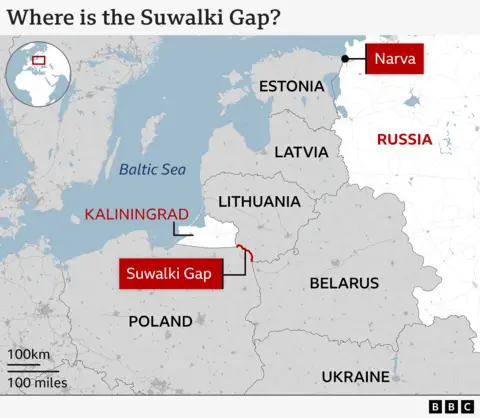
The Baltic states themselves are other potential flashpoints. Estonia, Latvia and Lithuania were all once part of the Soviet Union and were ruled from Moscow.
They all voted for independence and have since joined Nato, but all have Russian-speaking minorities and hence there is a risk that Mr Putin could be tempted to send his troops across the border "to protect them from persecution".
The eastern Estonian town of Narva, for example, is an obvious potential target here, as the majority of its population speak Russian and it sits just across the river from the giant Russian fortress of Ivangorod.
A UK battle group comprising some 900 British military personnel has been stationed in Estonia, about 80 miles west of Narva, since 2017.

 AFP via Gettty Images
AFP via Gettty ImagesIn the event of war, the plan goes, it would be hurriedly reinforced to brigade strength of around 3,000 or more.
Another possible flashpoint is the Arctic archipelago of Svalbard, which is administered by Norway but where Moscow already has a toehold in the coal mining town of Barentsburg.
The UK may well be Putin's enemy number one, having been one of Ukraine's staunchest allies, and having pushed for more powerful weapons to be delivered to help its defence.
Hostile acts on UK soil that have been linked to President Putin include the murder with radioactive Polonium-210 of former KGB officer Alexander Litvinenko in London in 2006 - a public inquiry concluded that Putin "probably" approved his assassination - and the attempted murder of former Russian military intelligence officer turned MI6 agent Sergei Skripal in Salisbury in 2018, using the nerve agent, Novichok.
Dawn Sturgess, a mother-of-three, later died after she sprayed the Novichok, disguised as perfume, on her wrists. Putin was "morally responsible" for her death, an inquiry concluded last week.
Lord Anthony Hughes, the inquiry chair, said: "I have concluded that the operation to assassinate Sergei Skripal must have been authorised at the highest level, by President Putin."
Russia, which has always denied involvement in the attacks and suggested more than 20 different possible explanations for Ms Sturgess's death, described the report's findings as "tasteless fairy tales".

 Sputnik/ AFP via Getty Images
Sputnik/ AFP via Getty ImagesBut the UK is also a core member of the Nato alliance. While questions are certainly raised in private over the reliability of the current US administration in the White House, it is hard to envisage the UK ever having to fight Russia on its own.
"A pure UK-Russia conflict is not likely and can be disregarded, practically," says Mr Crump. "We would definitely fight with allies, although Russia would most likely only launch a conflict if it felt Nato would break."
The wild card here is US President Donald Trump.
While the chairman of Nato's Military Committee, Adm Cavo Dragone recently assured me that the US president was absolutely committed to defending the Nato alliance, others are not so sure.
Would Trump, for example, go to war to defend the Estonian town of Narva?

 Getty Images
Getty Images"There is no one-size-fits-all answer to what the United Kingdom is actually capable of," concludes Keir Giles of Chatham House, "because there are so many different situations under which it could be challenged by Russia."
As a society, the UK – unlike Poland, Finland and the Baltic States – is unquestionably not ready for war. Even serious preparations for such an eventuality would be both expensive, unpopular and politically risky.
But Mr Giles of Chatham House offers some sobering advice to the British public: "Recognise that the rights and freedoms and prosperity that they take for granted are in fact under threat and that freedom does not come for free."
"And understand that lives will have to change. And this is not the fault of the current government or even its predecessors — it's their fault that it is so expensive, but the root cause of the problem is in Moscow."
Top image credit: Ministry of Defence /PA Wire/ Getty Images. Picture shows soldier in non-combat scenario


BBC InDepth is the home on the website and app for the best analysis, with fresh perspectives that challenge assumptions and deep reporting on the biggest issues of the day. You can now sign up for notifications that will alert you whenever an InDepth story is published - click here to find out how.

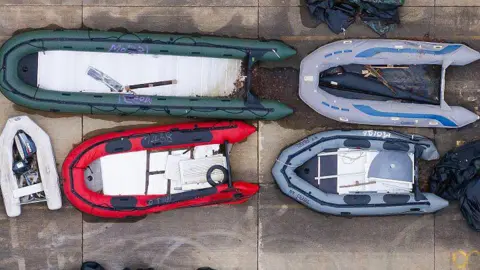 Dan Kitwood/Getty Images
Dan Kitwood/Getty ImagesThe UK's asylum system is affected by inefficiencies, "wasted public funds" and a succession of "short-term, reactive" government policies that have moved problems elsewhere, the National Audit Office (NAO) has said.
As part of its analysis, the spending watchdog looked at a sample of 5,000 asylum claims lodged almost three years ago, in January 2023.
Since then, 35% (1,619) of those asylum seekers had been given some sort of protection such as refugee status, and 9% (452) had been removed from the country. But 56% (2,812) still did not have a final outcome in their case.
The Home Office welcomed the analysis, which it said supported "the case for fundamental reform of the asylum system".
Most of the cases in the remaining group (2,021 out of the 2,812) remained in a sort of "limbo", with no appeal lodged.
The NAO's chief analyst, Ruth Kelly, told reporters: "They've had their claim refused, but they're staying in the system with their case unresolved, and that's because of the difficulties in removal."
A shortage of other types of accommodation means that large numbers of asylum seekers whose cases are not closed are being housed in hotels. The cost of accommodation in 2024-25 was £2.7bn.
Enver Solomon, the chief executive of Refugee Council, said of the January 2023 analysis: "The NAO's finding that more than half of people who applied for asylum almost three years ago still don't have an outcome is shocking."
He said the report mirrors what the Refugee Council's front-line services see every day, "an asylum system that is simply not functioning, where people wait months or even years for a decision… and costs keep rising".
The NAO's report criticises how successive governments have dealt with the current surge in small boats crossings that began in 2018.
"Interventions have tended to be reactive and focused on fixing an urgent problem in one part of the system only, such as intake or initial decisions, without a clear view of the effects on other parts," the report says.
"Increases in speed of processing have sometimes come at the expense of the quality of decisions, and improvements in one area have shunted problems elsewhere."
The NAO gave the example of former prime minister Rishi Sunak's drive to clear the legacy asylum backlog in 2023, which then shifted pressure onto the appeals stage, simply creating another backlog in the courts.
Ruth Kelly said one of the most critical factors now was a shortage of specialist immigration judges to hear appeals.
"There's a severe capacity shortage with judges," she said. "And judges told us there are poor incentives for working in the immigration and asylum tribunals… because of the taxing and the complex nature of the work, and also because of negative media attention, which makes it harder to recruit judges."
The NAO said it would be looking for evidence that the government was now moving away from "short-term, reactive fixes" towards a "sustainable whole-system approach".

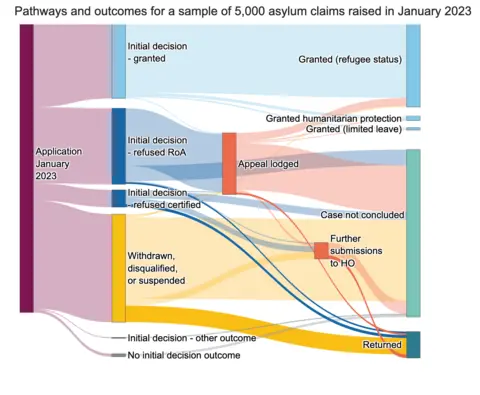
It said the current lengthy delays in the system "erode public confidence in the system's fairness and effectiveness".
The NAO also found that it was impossible to track individual cases through the whole asylum process because there is no "unique asylum case identifier" shared by Home Office, court service and local authority computer systems.
The report says that because the asylum applications are subject to fluctuating demand with significant peaks, it was important to build a flexible and resilient system that can respond to increases and decreases in demand.
Ruth Kelly, the NAO analyst, said the government needed to avoid reverting to "that pattern of counter-productive quick fixes that we have seen in the past".
A Home Office spokesperson said: "The home secretary recently announced the most sweeping changes to the asylum system in a generation to deal with the problems outlined in this report.
"We are already making progress – with nearly 50,000 people with no right to be here removed, a 63% rise in illegal working arrests and over 21,000 small boat crossing attempts prevented so far this year.
"Our new reforms will restore order and control, remove the incentives which draw people to come to the UK illegally and increase removals of those with no right to be here."

 Getty Images
Getty ImagesUK adults spent over half an hour longer online every day in 2025 than they did during the pandemic, according to an annual survey of internet habits by the regulator Ofcom.
The Online Nation report found on average, people in the UK spent four hours and 30 minutes online every day in 2025 - 31 minutes longer than in 2021.
Psychologist Dr Aric Sigman told the BBC this was not a problem in itself, but what mattered was "what this time is displacing and how this may harm mental health".
He added the "good news" was society was "beginning to question online time more critically".
In a year where the major UK Netflix drama Adolescence won praise and politicial attention for shining a light on misogynistic online content, the survey found adults were feeling less positive about the impact of the internet overall.
Only a third (33%) said they felt it was "good for society" – down from 40% in 2024.
However, nearly two thirds of people still believed the benefits of being online outweighed the risks.
And many adults said they found the internet to be a source of creativity, with roughly three quarters agreeing being online helped them to broaden their understanding of the world.
The report also explored children's experiences of being online.
While more than eight in ten aged 8-17 said they were happy with the amount of time they spent on the internet, they also recognised there were negative impacts of endlessly scrolling on smartphones.
The term "brain rot" was used by some children surveyed to describe the feeling they were left with after spending too long on their devices.
It has become a popular phrase to describe overconsuming online posts and videos considered to be the opposite of mentally challenging.
And Ofcom found across four of the main services used by children - YouTube, Snapchat, TikTok and WhatsApp – up to a quarter of the time 8 to 14-year-olds spent online was between 2100 and 0500.
From 25 July, Ofcom required websites operating in the UK with pornographic content to "robustly" age-check users, under the Online Safety Act.
Some people began using a virtual private network (VPN) at this time - tools which can disguise your location online to allow you to use the internet as though you are in another country.
The increase indicates people are likely using them to bypass requirements of the Act.
After the age checks became mandatory, the survey said VPN use more than doubled, rising from roughly 650,000 daily users before July and peaking at over 1.4 million in mid-August
But it also found the number had since declined to around 900,000 in November.
The report also found 69% of children aged 13 to 17 said they used online services to help with their wellbeing, either to relax or improve their mood.
More than half named ASMR as a tool they had used in particular to help them relax.
These videos became an online phenomenon more than a decade ago - which some people claim causes them to feel a tingling sensation.
It has led to an entire industry of online creators making special content viewed on platforms such as YouTube.
But children were not solely positive about their online experiences.
Seventy percent said they had issues with self-improvement media - involving toxic messaging or body shaming.


Sign up for our Tech Decoded newsletter to follow the world's top tech stories and trends. Outside the UK? Sign up here.

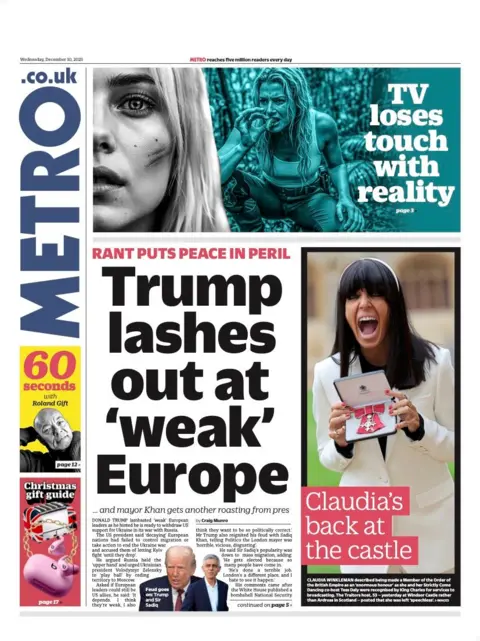

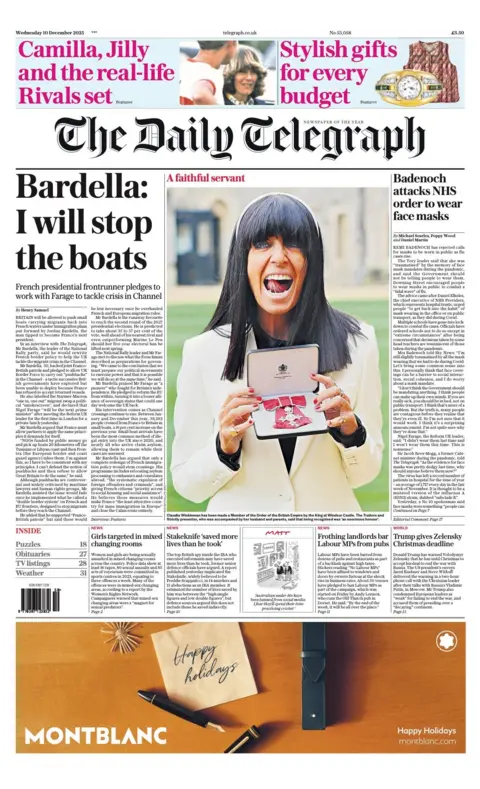

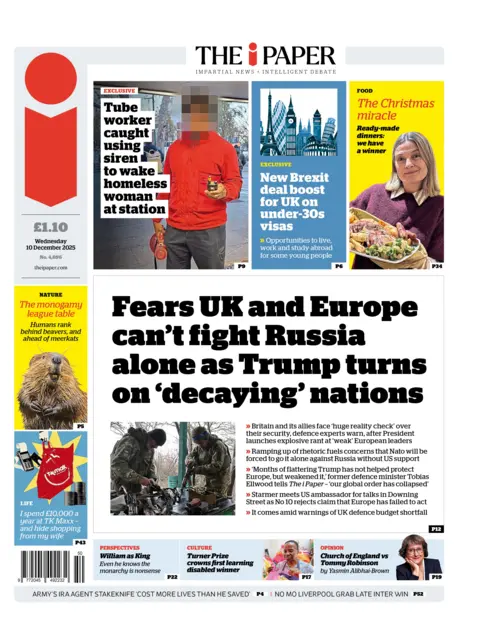

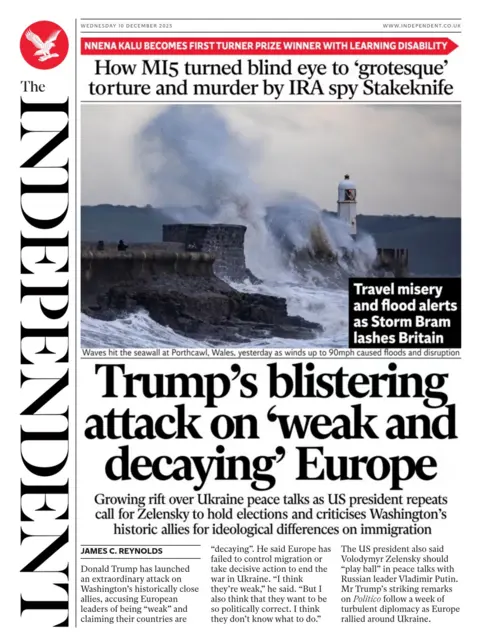

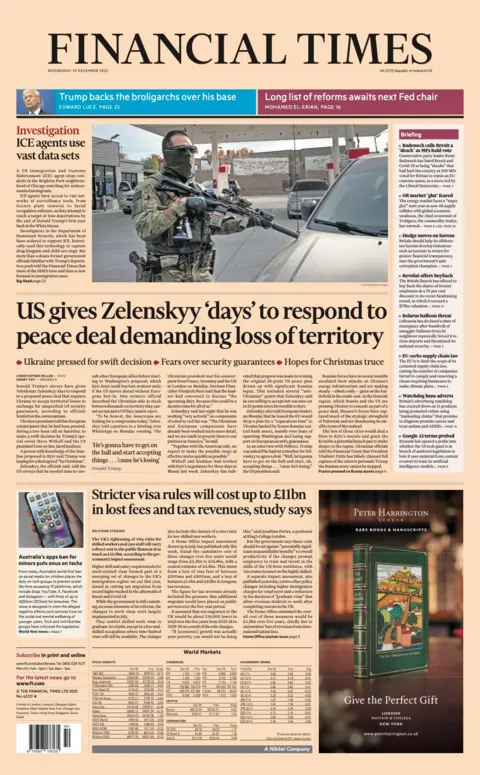

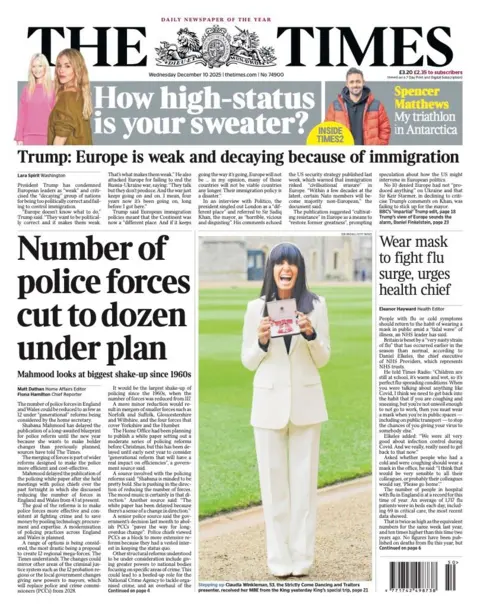

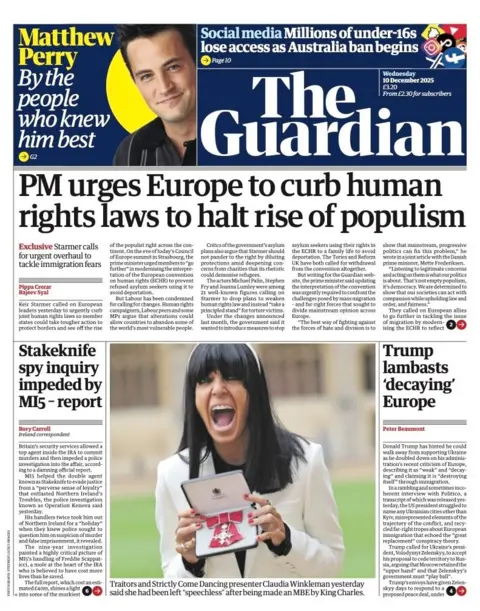












Sign up for our morning newsletter and get BBC News in your inbox.


陷入困境的中国万科公司星期三(12月10日)召开债权人会议,这家开发商努力争取债权人支持其债券延期计划,以避免违约。
万科20亿元人民币(约合3.67亿新元)的境内债券将于12月15日到期,债权人将于当地时间上午10点在线召开会议。他们需要在星期五(12日)之前对万科提出的将债券偿还期限推迟一年的方案进行投票表决。该公司需要获得至少90%债权持有人的批准。
据彭博社报道,目前至少有三家公司表示反对。
但这一方案是万科缓解流动性压力和降低违约风险的关键。万科最大的国有股东深圳地铁集团股份有限公司此前曾提供过超过300亿元人民币的股东贷款,为其提供生命线支持。但近期,深圳地铁集团收紧了融资条件,其支持策略的转变导致万科证券价格暴跌至严重困境水平。
未来几个月对万科而言尤其危险,该公司有134亿元人民币的公开发行债券将于2026年年中到期或面临提前赎回压力。
万科最初的方案是给予12个月的无条件延期,无需任何预付现金或分期付款。周二,万科代表联系了部分债券持有人,表示公司也愿意支付部分利息,但并未具体说明金额。债券持有人还将对另外两项条款更为优惠的提案进行投票,这两项提案要求万科按时支付利息并增加一些信用增级措施。
万科的总负债约为510亿美元(661.67亿新元),是中国房地产市场多年来持续低迷的情况下,少数几家尚未违约的大型开发商之一。其债券延期计划引发市场震荡,再次引发房地产行业的担忧,并导致部分债券价格跌至历史新低。
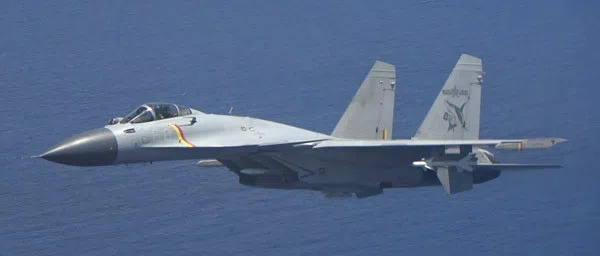
日本指责中国对日本自卫队飞机照射雷达后,美国批评北京此举不利于地区和平与稳定,并重申对日本的承诺坚定不移。
随着中日紧张关系持续加剧,中国航母打击群近期在靠近日本的海域航行并举行演练,引发双方军机海上对峙。日方指中国辽宁号航母舰载机歼-15上星期六(12月6日)在冲绳岛东南方向的国际海域,两度对日本航空自卫队F-15战机进行雷达照射。
美国国务院发言人星期二(12月10日)说,中国的行为不利于地区和平与稳定,并称美日同盟比以往任何时候都更加稳固团结,“我们对盟友日本的承诺坚定不移,并就此事及其他问题保持密切沟通”。
这是美国首次公开批评中国战机对日本军机照射雷达的行为。
中国外交部发言人郭嘉昆星期一(12月8日)在例行记者会上强调,舰载机在飞行训练时开启搜索雷达,是各国惯常做法,也是确保飞行安全的正常操作。
日本内阁秘书长木原稔则称,中国对自卫队飞机断断续续照射雷达,是超出安全飞行必要范围的危险行为,而非中方所称的正常操作。
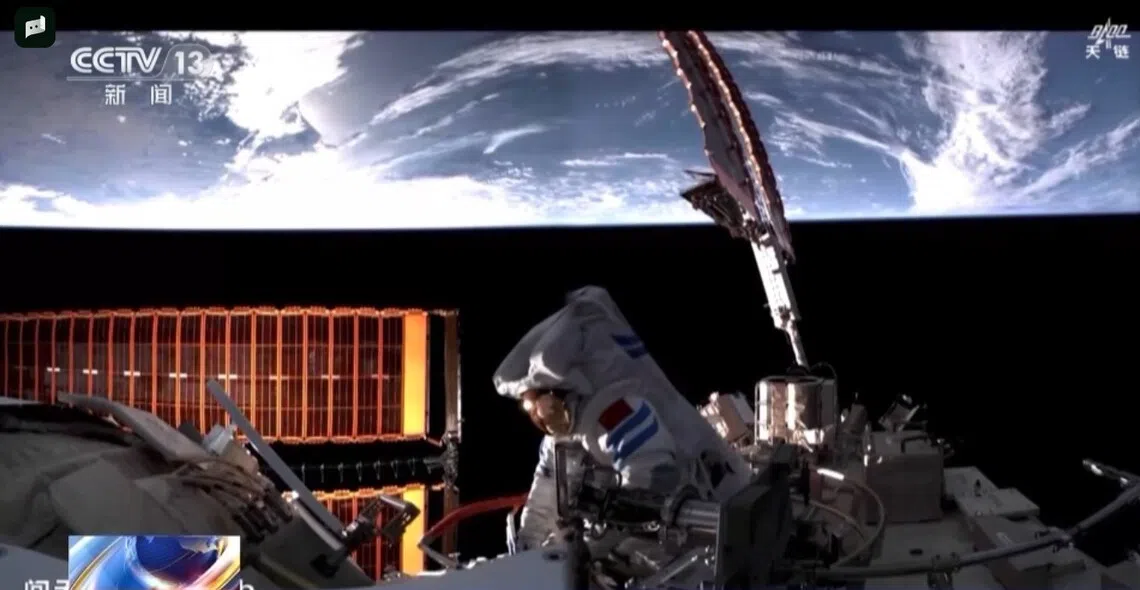
中国神舟二十一号乘组航天员在首次出舱任务中,给空间站安装了空间碎片防护装置。上个月,神舟二十号飞船遭到空间碎片撞击,导致返回舱舷窗出现贯穿裂纹。
据央视新闻报道,星期二(12月9日)下午6时45分,经过约八小时的出舱活动,神舟二十一号乘组航天员张陆、武飞、张洪章密切协同,在空间站机械臂和地面科研人员的配合支持下,顺利完成了神舟二十号飞船返回舱舷窗巡检拍照、空间站空间碎片防护装置安装、温控适配器多层罩更换等任务。
神舟二十一号中三名宇航员中的两名出舱,利用天宫号的机械臂安装了碎片防护装置。
根据央视公布的细节,9日上午10时28分许航天员张陆打开舱门,经过一系列准备工作后,他登上机械臂,在另一名航天员武飞的协助下完成设备传递,然后机械臂向神舟二十号飞船移动,航天员张洪章在空间站天和核心舱内支持配合。
报道称,这是首次航天员在出舱活动过程中,空间站组合体停靠了两艘载人飞船,为进行机械臂路径的规划以及是否能支持航天员在作业点完成工作带来了很大的难题。
当天下午2时43分许,张陆在机械臂的配合支持下,开始对神舟二十号飞船返回舱舷窗进行巡检拍照。神舟二十号飞船返回舱舷窗在11月4日受损。
此次由航天员在外部进行巡检拍照,将有助于科研团队更好地确认神舟二十号飞船返回舱舷窗受损情况。
当天下午3时21分许,航天员张陆搭乘机械臂来到天和核心舱外部,开始进行空间站空间碎片防护装置安装工作。经过约8个小时出舱活动,当天18时45分,出舱航天员张陆、武飞完成全部既定任务,返回问天实验舱气闸舱。
中国航天员科研训练中心工作人员表示,后续,神舟二十一号乘组还将实施人员和应用载荷出舱活动,开展科学实验与技术试验,并视情由航天员乘组对神舟二十号飞船受损舷窗进行防护处置。
国际航空巨头空中客车说,已获中国批准交付此前订购的120架飞机,但这份在北京签署的协议,并未推动一笔涉及数百架新飞机的大订单取得实质进展。
据路透社报道,法国总统马克龙上周访华,就地缘政治和贸易议题进行会谈,但未提及空客已讨论逾一年、涉及500架飞机的大单。这类大规模订单通常与国家元首访问相关。
法国媒体星期一(12月8日)报道称,空客赢得一项未来可能带来120架新订单的协议。但空客称,这份通用条款协议(GTA)只是推进现有订单的标准步骤。空客发言人说:“这份GTA协议授权交付已计入订单簿的飞机,这在中国客户中属于标准程序。”
目前,空客与波音均在等待中国对大型潜在订单的进一步动作,而中国已多年未下达这类具有政治敏感性的重大采购。消息人士透露,空客至少从2024年起就与中方断断续续谈判,希望拿下500架飞机的订单,但在地缘政治不确定性升高之际,中方对大规模采购保持谨慎。
行业人士指出,空客原寄望借此实现突破,以在今年的订单竞赛中追赶竞争对手波音,并达成公司内部设定的约1200架订单目标。然而,除非出现意外转折,目前几乎没有迹象显示北京会在年底前向两家制造商下达这种标志性大单。
今年前11个月,空客在扣除取消订单后录得700架净订单;波音截至10月底则录得782架净订单。尽管空客上周因部分机身面板的工业问题下调了交付预测,但预计今年仍将连续第七年在交付量上领先波音。
此外,国际航空运输协会(IATA)总干事星期二(12月9日)在日内瓦说,在供应链持续紧张的背景下,业界对空客如期完成交付目标的信心有所下降,而波音的表现则略有改善。

© Charity Rachelle for The New York Times

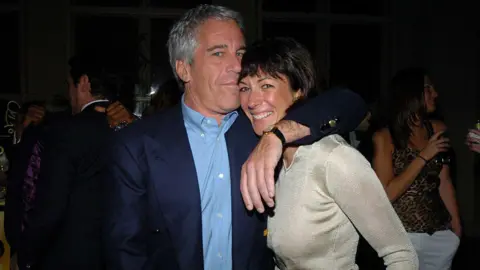 Getty Images
Getty ImagesA federal judge in New York has ruled the US Department of Justice can publicly release grand jury materials from Ghislaine Maxwell's sex trafficking investigation.
US District Judge Paul Engelmayer said he was ordering the release of material because of a recent law passed by Congress, which requires the justice department to publish files related to disgraced financier Jeffrey Epstein by the end of next week.
In his ruling, he said the court would put in place mechanisms to protect victims from the release of materials that would "identify them or otherwise invade their privacy".
Maxwell was convicted in 2021 for her role in luring underage girls for Epstein, her former boyfriend, to exploit. Epstein died in prison in 2019.
Prosecutors argued Maxwell recruited and groomed girls, some as young as 14, between 1994 and 2004, before they were abused by Epstein.
Maxwell, who is serving a 20-year prison sentence, was moved from a Florida prison to a new minimum-security facility in Texas in August, after she was interviewed by Deputy US Attorney General Todd Blanche about Epstein.
In a letter to Judge Engelmayer, Maxwell's legal team said she did not take a position on the justice department's motion to release the grand jury material.
Representative Robert Garcia, the top Democrat on the House Oversight Committee, which has released thousands of files and messages it subpoenaed from Epstein's estate, said the unsealing was a "victory for transparency".
"These files are now part of the Epstein files held by the Department of Justice, and must be turned over to the Oversight Committee in response to our subpoena," he said.
The order to publish the records followed a similar ruling from a judge in Florida on Friday, which allowed for the unsealing of documents related to the state's investigation against Epstein that began in 2005.
Congress passed the Epstein Files Transparency Act, which President Donald Trump signed into law in November after previously rejecting calls to release the files.
The law "applies to unclassified records, documents, communications, and investigative materials" that relate to Epstein and Maxwell, a court order said.
The justice department has until 19 December to publicly release all the information from federal investigations into Epstein, though the law also allows the department to withhold files that involve active criminal investigations or raise privacy concerns.
Florida and New York judges had previously refused to unseal grand jury materials related to Epstein, citing federal rules that require grand jury processes to be kept secret.
But after Congress passed the bill to release the Epstein material, the justice department made the same request, arguing the legislation's "clear mandate" should "override" those secrecy rules.

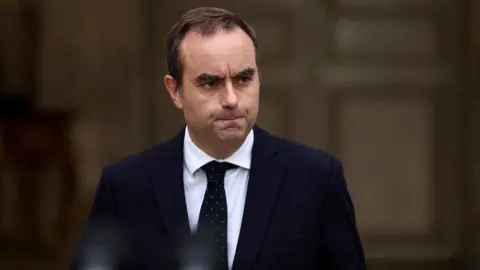 Reuters
ReutersFrench Prime Minister Sebastien Lecornu faces a crucial test on Tuesday as the country's divided parliament prepares to vote on a 2026 budget bill.
If Lecornu fails to win a majority in the National Assembly for his social security budget, it bodes ill for the main budget bill which follows and which needs to be voted through by the end of the year.
It could also pose awkward questions over his authority to lead the government, though for the moment there is little expectation he will resign.
Appointed in September by President Emmanuel Macron, Lecornu has devoted himself exclusively to the uphill task of guiding 2026 budget legislation through the two chambers of parliament.
Since snap elections called by Macron in June 2024, the more powerful chamber, the National Assembly, has been split into three roughly equal blocs – centre, left, and far-right -- none of which is capable of commanding a majority.
Lecornu is Macron's fourth prime minister since then – the two previous incumbents Michel Barnier and François Bayrou having both been forced to resign after trying to rein in France's burgeoning debt. Barnier stepped down exactly a year ago after failing to push through the 2025 social security budget.
In the French system, there are two budgetary laws – one that raises and allocates money in the social security system, including hospitals and pensions; and the principal one that covers everything else, from defence to education. For years both have run on massive deficits.
Widely acknowledged for his discretion and diligence, Lecornu needs to convince enough deputies from the 11 different parliamentary groups that failure to vote the budgets through will plunge the country into even deeper financial gloom.
His main target has been the Socialist Party (PS) with around 70 MPs, many of whom are uncomfortable in their erstwhile electoral alliance with the far-left France Unbowed party.
In major concessions to the PS, Lecornu promised to suspend Macron's key second-term reform increasing to 64 the statutory age of retirement, and also to refrain from using a government power (known as 49-3) to force through the budget laws without a vote.
Socialist leaders Olivier Faure and Boris Vallaud have praised Lecornu's sense of compromise and are urging their deputies to support the social security budget.
But by giving ground to the centre-left, Lecornu has potentially lost support in his own camp on the centre-right, where important figures such as former Prime Minister Edouard Philippe say the bill will do little to redress the country's fast deteriorating public accounts.
Tuesday's vote was set to be very close, with the far-right National Rally and its allies (140 or so deputies) and the far-left France Unbowed (71) both set to vote no, along with the Ecologists and Communists (55 altogether). A majority in a full chamber is 288 MPs.
Lecornu is hoping to win over some individuals on the left with promises of more spending on hospitals. And he hopes opposition from within his own camp will be limited to abstentions rather than votes against.
If the social security budget fails to pass, it would almost certainly mean that the main budget for 2026 would also fail. As a result the government would probably introduce a special law to allow the state administration to continue functioning from 1 January using 2025 allocations.
Though a personal blow to Lecornu and his low-key political methods, few expect that he would immediately step down in such a scenario.
By voluntarily abandoning the use of the 49-3, the prime minister in effect gave MPs the chance to amend the government's budget text to their hearts' content. If the text then fails, he calculates, the blame will fall primarily on heads in parliament.


© Aleksey Kondratyev for The New York Times

© Doug Mills/The New York Times

© Pete Marovich for The New York Times

© Tierney L. Cross/The New York Times